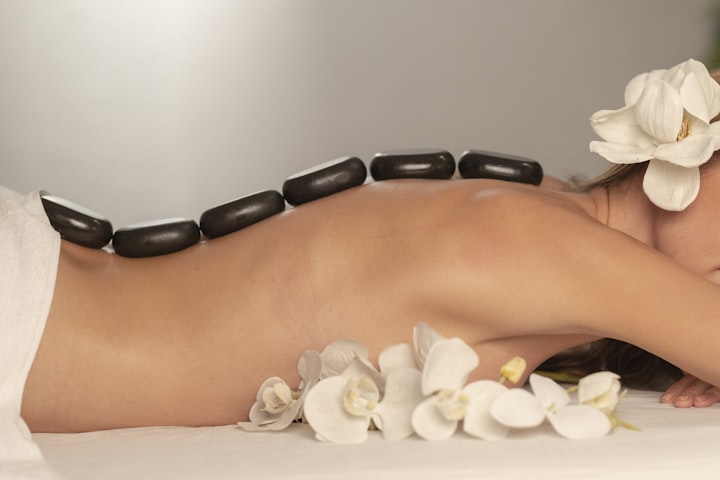Find Out How Ovulation Influences Your Choice of Clothes and Men!
Did you know this?

Despite human evolution, the ancestral mentality and primary, instinctive behaviors are still, unconsciously, in our depths.
How would you react if I told you that you choose your clothes, dress, compete with other women and attract men, all due to the period of ovulation and fertility? Well, it's true! A biological and anatomical phenomenon influences your clothing and social choices for at least 5 days, every month!
Studies from 2008–2010 by researchers in Australia, the United States, and Europe have found that women in the ovulation period inadvertently choose sexier clothes than the rest of the month.
Everything is due to the ancestral instinct of "survival of the fittest" in the competition for a ferocious male, exactly in the fertile period. This does not mean that today's women are moving towards "mating" every month, but only that the primary instincts that led to the perpetuation of the species reside in us.
Find out more about women's behavior and choices during ovulation!
What is ovulation? When does the ovulation period take place?
First of all, you need to know clearly what this important biological process means. Ovulation is the development and release of an egg from the ovaries, and the fertile period begins 4 days before ovulation and ends 2 days after it.
Medical statistics have shown that for a normal menstrual cycle (28 days), ovulation occurs on the 14th day, for a 29-day cycle ovulation occurs on the 15th day, and so on.
How have studies of female behavior during ovulation been conducted?
The leaders of the study wanted to determine if it is a myth that women's clothing is sexier when fertility peaks during ovulation.
The experiment involved 88 women, the same two times: the first time, during the period of lower fertility, and the second time, during the maximum fertility point.
The participants were completely photographed at both meetings, then asked to choose an outfit they would wear if they were invited to an important event that evening.
What did the specialists discover? First of all, women were better arranged during the most fertile period. Secondly, considering an important social event, they chose clothes that were much sexier than the ones they were wearing at the time.
The sudden changes in clothing were due to the sociosexuality, the sentimental status of the woman in question and the enthusiasm for the possible knowledge of a suitable man to be attracted by the sexy and carefully chosen clothing.
Therefore, studies have clearly shown that there is a psychological moment of mating, a time when women are more socially and behaviorally motivated.
The role of hormones in choosing clothes is …
During ovulation, more hormones make their way into your body, increasing self-esteem, attraction to the opposite sex, and sexual desire. These hormones are estrogen, testosterone, FSH (follicle-stimulating hormone), and LH (luteinizing hormone).
Also during this period, playful hormones influence the volume of cervical fluid, so your vagina lubricates quickly during ovulation, again a sign of our ancestral traits, which push us to perpetuate the species.
During ovulation, pheromones play an important role in women's attractiveness. Pheromones are hormones with a specific smell, but harder to feel, which play a very important role in the attraction between a woman and a man. Fermions are in clean perspiration, in the smell of clean hair or skin.
How is the women's clothing competition?
Contrary to many people's beliefs, women are more likely to pay attention to what clothes they wear and how they wear them, not necessarily to impress the group of powerful bachelors, but rather to break up the female competition.
To have more opportunities to choose a partner, women must prove to themselves and society that they are more attractive and more "tender" than other women around them. We may look like a pack of tigers and tigresses, but ultimately, we can't deny our primary origins and instincts.
We have to admit that we like to spend tens of minutes in front of the mirror even for a 10-minute meeting, just because at that meeting we either have to impress a man or we have to proudly smash the image of another woman.
We are not always in a race for the most attractive dress and the most beautiful shoes. Women's clothing competition is fierce only during ovulation, evidence of the influence of hormones on the female consumer.
How does ovulation influence female competition for a male?
There are other changes in female behavior that are associated with ovulation and competition, unconscious or not, for an available man.
During ovulation, women feel more attractive and sensual, feel more motivated to participate in events and parties, are more optimistic, and are more inclined to practice a sport that enhances their physical qualities.
Moreover, doctors have found that half of the brain responsible for communication and social interaction has an intense activity in the mid-follicular phase of the menstrual cycle.
Also close to ovulation, women tend to become intrasex competitive. The 2004 Fisher study involved a series of notes given by women to other women, from a nearby region, and a distant region.
The outcome? Women in the nearby region received very low grades when those giving the grades were in the ovulation period, a sign that the hormonal fluctuations of this period cause the woman to break up the competition when the stakes are high.
All this means one thing: in addition to general preferences, during ovulation women are much more willing to attract men and initiate a relationship.
Do you also have periods of the month when you tend to dress sexier and pay more attention to your appearance?





Comments
There are no comments for this story
Be the first to respond and start the conversation.